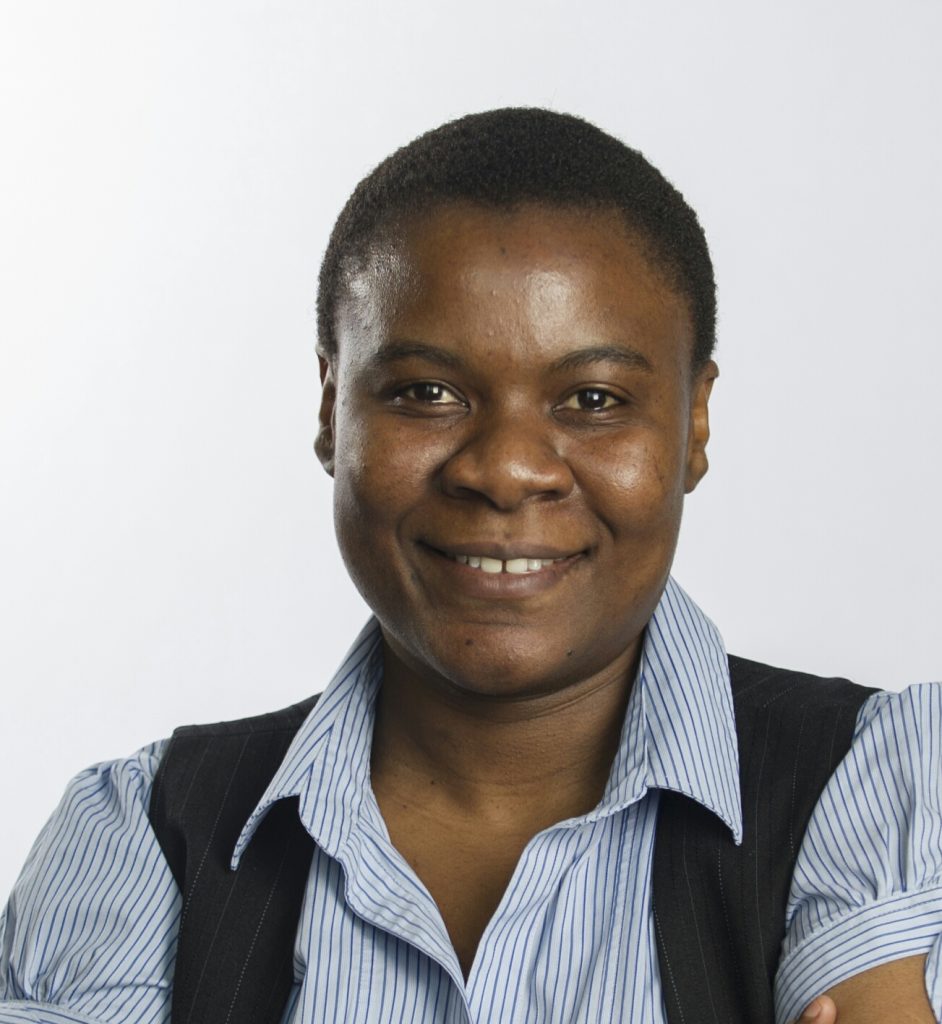By Dr Abisola Balogun-Katung & PhD student Ania Barros Mendes Couchinho
This months PHSI EDI BOOK CLUB Abisola and Ania have put together a fantastic collection of books on Black History Month and support black businesses and booksellers.
Support Black Businesses
Afrori Books: https://afroribooks.co.uk/
Round Table Books: https://www.roundtablebooks.co.uk/shop-black-studies-module
African Bookstore: https://www.africanbookstore.net/search.asp
New Beacon Books: https://www.newbeaconbooks.com/
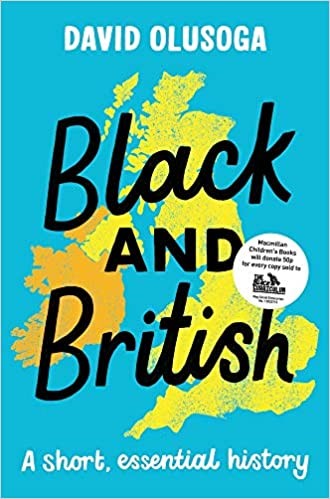
Black and British
David Olusoga
Black and British provide its reader with a thorough and vital history of black Britain. It provides the reader with an exposé of the lingering relationship between the people of Africa, the Caribbean and the British Isles, this book has rightfully been described as a “thrilling tale of excavation” and a ‘testimony to the rich experiences of Black people of Britain’. It is also available as a short, essential history for readers aged 12+.
A comprehensive and important history of black Britain
The Sunday Times
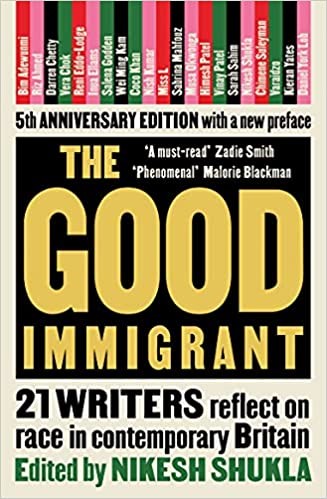
The Good Immigrant
Nikesh Shukla
The Good Immigrant brings together 21 thrilling Black, Asian and minority ethnic voices emerging in Britain. With a collection of poignant, challenging, sometimes angry, heartbreaking and humorous essays, it explores why immigrants come to the UK, why they stay and what it means to be ‘other’ in a foreign country miles away from home.
The stories are sometimes funny, sometimes brutal, always honest … if I could, I’d push a copy of this through the letter box of every front door in Britain.
The Independent
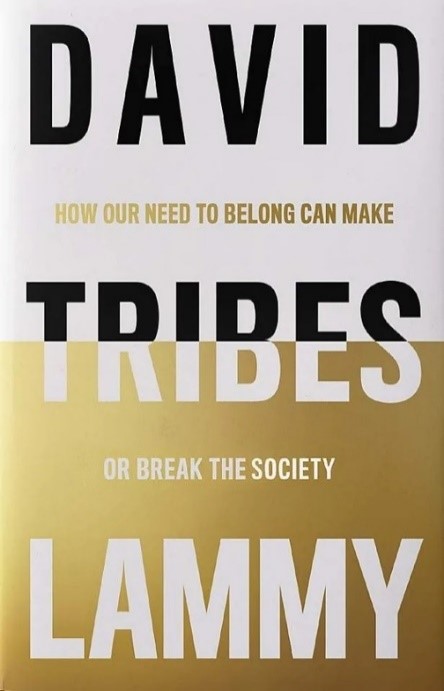
Tribes
David Lammy
Tribes explores the benign and malignant effects of our need to belong in society. This genetically programmed and socially acquired need to belong manifests in positive ways through collaboratively achieving great successes, which individually cannot be achieved. On the other hand, this need can manifest in negative ways, particularly with globalisation and digitisation leading to new, more malicious forms of tribalism. David Lammy provides the reader with a fascinating and perceptive socio-political analysis of Britain and what it means to be British.
Lammy writes with nuance and sensitivity and accepts the lack of easy answers. But his core message is simple. We must cooperate more, compromise more, communicate more. Only connect, but offline.
Prospect
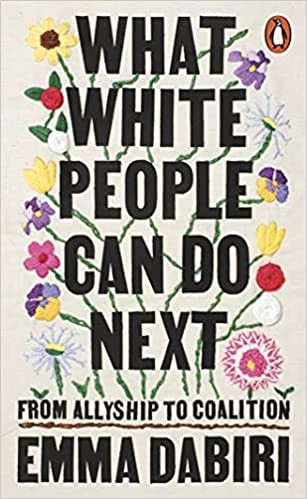
What White People Can Do Next
Emma Dabiri
Vital and empowering What White People Can Do Next teaches each of us how to be agents of change in the fight against racism and the establishment of a more just and equitable world. In this affecting and inspiring collection of essays, Emma Dabiri draws on both academic discipline and lived experience to probe the ways many of us are complacent and complicit—and can therefore combat—white supremacy. She outlines the actions we must take, including: Stopping the Denial, Interrogate Whiteness, Abandon Guilt, Redistribute Resources, Realize this s**t is killing you too . . .
To move forward, we must begin to evaluate our prejudices, our social systems, and the ways in which white supremacy harms us all. Illuminating and practical, What White People Can Do Next is essential for everyone who wants to go beyond their current understanding and affect real—and lasting—change.
Concise, sure-footed and complete . . . a battle cry against racism for even the most socially aware . . . Dabiri’s reflections have been a very, very long time coming
Tanya Sweeny ― Irish Independent

In the Wake: On Blackness and Being
Christina Sharpe
This captivating and poetic piece of work unpacks the state and existence of Black beings in modern society. It Considers what binds Black lives together following the journey from slave ships to consciousness or what Sharpe labels ‘The Wake.’ The consciousness and awareness of Blackness that writers such as Shilliam (2015) and Adichie (2017) adopt in their work. Sharpe reinforces her idea of The Wake by defining it as a Black awareness of ‘skewed life chances, limited access to health and education, premature death, incarceration, impoverishment’ (Sharpe, 2016). This Black consciousness is what Sharpe aims to academically theorize and encapsulate in this text. Its four chapters, The Wake, The Ship, The Hold and The Weather, it cleverly addresses themes of postcolonialism, decoloniality and feminism.
Christina Sharpe’s deep engagement with the archive of Black knowledge production across theory, fiction, poetry and other intellectual endeavours offers an avalanche of new insights on how to think about anti-Blackness as a significant and important structuring element of the modern scene.
Cutting across theoretical genres, In the Wake will generate important intellectual debates and maybe even movements in Black studies, cultural studies, feminist studies and beyond. This is where cultural studies should have gone a long time ago
Rinaldo Walcott – author of Black Like Who?: Writing Black Canada

Things Fall Apart
Chinua Achebe
This emotive and comforting novel offers a Pan-African narrative completely free of Eurocentrism. The story of Okonkwo, a man of the Ibo tribe in Nigeria, tells a story of a way of life many modern Africans continue to mourn. It brings to light both the positive experiences of African life before colonisation and mirrors the fall of African customs and traditions towards the end of the 19th century.
The writer in whose company the prison walls fell down
Nelson Mandela
His courage and generosity are made manifest in the work
Toni Morrison
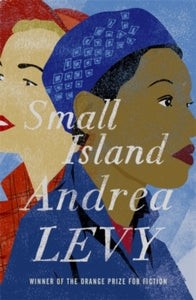
Small Island
Andrea Levy
A moving novel that tells the stories of a Black woman, a Black man, a white woman and a white man and the way in which their paths overlap unexpectedly. Set at the time of the Windrush era, Small Island tells the story of the Windrush generation. Levy taps into the unique racialised experiences of each individual, the gender roles set by both racial backgrounds and the socio-political experiences of all four individuals as England recovers from the 2nd World War.
Gives us a new urgent take on our past.
Vogue
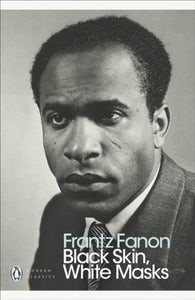
Black Skin, White Mask
Franz Fanon
This timeless historical critique rewrites the history of colonialism from a lens that describes the transition of Africa towards Eurocentrism. Fanon discusses Africa’s heart-breaking psychological, physical, and cultural transformation that provides historical context for today’s socio-political landscape. A must-read for all those interested in Decoloniality, Black and postcolonial studies.
This century’s most compelling theorist of racism and colonialism
Angela Davis
